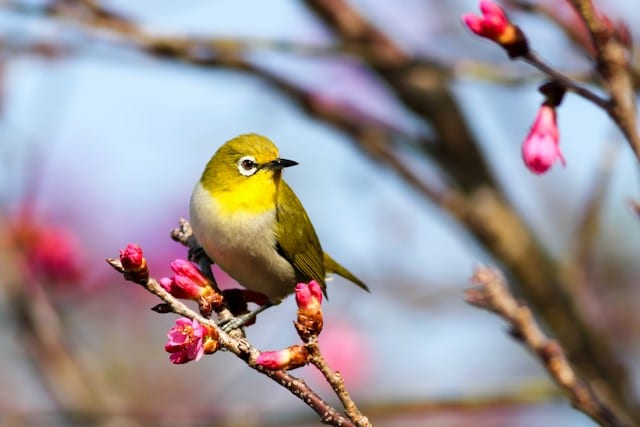With the rise in pet ownership, an increasing number of people are finding joy and companionship in our feathered friends. Whether you’re new to bird ownership or a seasoned aviculturist, feeding your bird the right diet is essential. Birds, like humans, need a balanced mix of nutrients to stay healthy, and if you’ve adopted a vegetarian bird, that task requires a bit more thoughtfulness. But don’t fret. We’re here to guide you on how to create a balanced diet for your vegetarian bird.
Understanding What Birds Eat
Before diving into what to feed your bird, it’s essential to understand what birds eat. Birds eat a variety of foods. However, not all birds are created equal. Some are carnivores, others are omnivores, and some are vegetarians.
Dans le meme genre : Understanding your cat’s meows
Vegetarian birds mainly feed on seeds, fruits, and vegetables. Seeds are a staple in many bird diets, providing essential fats, protein, and vitamins. Fruits and vegetables, on the other hand, offer a variety of nutrients and hydration sources.
While seeds are vital, they shouldn’t make up the entirety of your pet’s diet. Too much can lead to obesity and other health issues. A balanced diet will include a mix of seeds, fresh fruits, and vegetables, and perhaps supplemented with specially designed bird pellets.
A lire également : How Can You Diagnose and Manage Epilepsy in Dogs?
Types of Foods to Include in a Vegetarian Bird’s Diet
Now that you understand what vegetarian birds eat let’s delve into the specific types of foods you should include in their diet.
Seeds are a go-to food for birds. They’re packed with vitamins and minerals. However, they’re also high in fats, so they should only comprise about 20-25% of your bird’s diet. Some suitable seeds for vegetarian birds include sunflower seeds, sesame seeds, flax seeds, and pumpkin seeds.
Pellets are another excellent food source. They’re typically made from a variety of grains, fruits, and vegetables, offering a well-rounded nutrient profile. Pellets should make up about 50% of your bird’s diet.
Fruits and vegetables are also a must, contributing hydration, vitamins, and fiber to your bird’s diet. Vegetables should be fresh and organic when possible. Suitable fruits for birds include apples, bananas, and berries, while good vegetables include leafy greens, bell peppers, and squash.
Water is a crucial part of any bird’s diet. Ensure your bird always has access to fresh, clean water. Change the water daily to prevent the growth of bacteria.
Foods to Avoid in a Vegetarian Bird’s Diet
Knowing what foods to avoid is just as important as knowing what to feed your bird. Certain foods are toxic to birds and should never be included in their diet.
Avocado is toxic to birds and can cause respiratory distress, heart failure, and death. Chocolate and caffeine can cause heart problems, while alcohol can lead to liver and kidney damage. Onions and garlic, in large quantities, can cause anemia. Fruit pits and seeds from apples, cherries, peaches, and apricots contain cyanide and are also toxic to birds.
Feeding Baby and Small Birds
If you have a baby or small bird, their dietary needs will differ slightly from adult birds. Baby birds need higher protein levels for growth. They can be fed a diet of specially formulated baby bird food, supplemented with small amounts of fruits and vegetables.
Small birds, like budgies and canaries, may need their food chopped into smaller pieces to eat comfortably. They also benefit from a higher seed intake, though fruits, vegetables, and pellets should still make up a significant portion of their diet.
Feeding Wild Birds
If you’re looking to support the local wild bird population, there are some things to keep in mind. Wild birds can eat many of the same foods as pet birds. Seeds, fruits, and vegetables are all good choices. However, avoid feeding them anything processed or containing salt or sugar.
Also, be aware that feeding wild birds can create dependence. If you start feeding them, try to do so consistently, especially during the winter when food sources may be scarce.
Creating a balanced diet for your vegetarian bird doesn’t have to be a daunting task. By understanding their dietary needs and avoiding harmful foods, you can ensure that your feathered friend stays healthy and happy.
Bird Dietary Habits and Signs of Malnutrition
Understanding your bird’s dietary habits is vital for their health and wellbeing. Bird food should be diverse and packed with vitamins and minerals to cater to their nutritional needs. Observing your bird’s eating habits can give you insight into their health status. Inactivity, weight loss, ruffled feathers, or change in droppings could indicate malnutrition or illness.
Vegetarian pet birds can be picky eaters. Some might prefer seeds over fruits or vegetables. Seeds are high in fats, so ensure they only make up around 20-25% of the bird’s diet. Fruits and vegetables should be fresh and organic, providing hydration, vitamins, fiber, and various minerals. Including a variety of fruits and vegetables in your bird’s diet can prevent picky eating habits and ensure nutritional balance.
Pelleted diets are a fantastic option for supplementing a bird’s diet. They are made from a blend of grains, fruits, and vegetables, providing a wide range of nutrients. Pellets should constitute about 50% of your bird’s diet.
Also, remember that clean water is an essential element of a balanced bird diet. Always ensure your bird has access to fresh water and change it regularly.
Conclusion
Creating a balanced diet for a vegetarian bird can seem like a daunting task, but it doesn’t have to be. The key to a balanced diet lies in understanding what vegetarian birds eat and their dietary needs. The primary food groups for a vegetarian bird consist of seeds, fruits, vegetables, and pellets.
When feeding your bird, always remember to avoid foods that could be harmful, such as avocado, chocolate, and certain fruit pits. Also, remember that while seeds are an integral part of a bird’s diet, they should only make up around a quarter of the diet due to their high-fat content.
If you have a baby bird or a smaller bird like a budgie or parakeet, their dietary needs will vary slightly. Baby birds require more protein for growth, while smaller birds may need their food broken down into smaller pieces for easy digestion.
Feeding wild birds can be a rewarding experience. However, it’s crucial to know that feeding them consistently, especially in winter, can create a dependence.
In conclusion, a balanced diet is essential for a bird’s health and wellbeing. By adhering to these guidelines on food types, proportions, and what to avoid, you can ensure that your feathered friend stays in top health, whether they’re a pet bird or a member of the local wild bird community.











